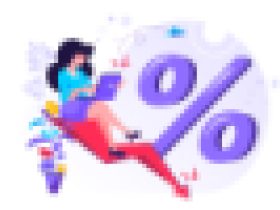Search Engines also consider the download speed of a web page. If the site is huge with a lot of badly optimized images and web content, the site tends to load relatively slower. Slower web pages are considered bad with search engines and they tend to rank them poorly.
Slow web pages might even affect crawlers not enabling them crawl the page properly. The visitors who try to view the page also would tend to close the site and search for the next best site available on the search engine listings. This badly increases the bounce rate which results in poor conversion rate. Slower Loading is influenced by many factors:
- Too many images
- Slow Hosting Server
- Too many HTML Errors
- Auto Start Videos
- Huge flash content
- Poor Bandwidth
- Browser Incompatibility
All the above criteria should be considered while optimizing a web page. This can help the site get faster and simpler. Online tools and applications are used to calculate the download time of web pages.
There are a lot of standards and guidelines set by the World Web Consortium (W3C). W3C is a consortium which lays specifications, guidelines to web sites. These guidelines are verified by the search engines while ranking a web page. Hence it is recommended that we abide stick to the W3C standards while designing, coding and implementing a website.












Leave a Reply